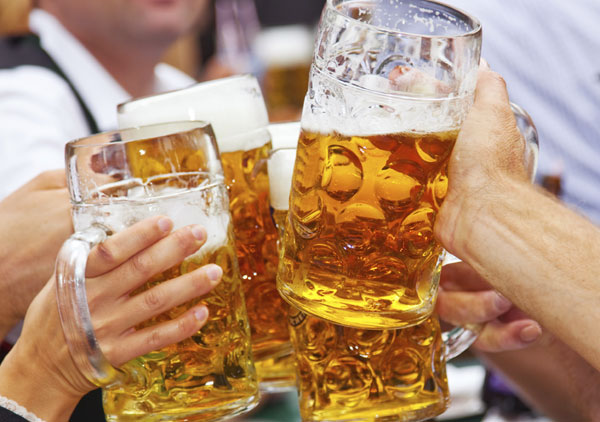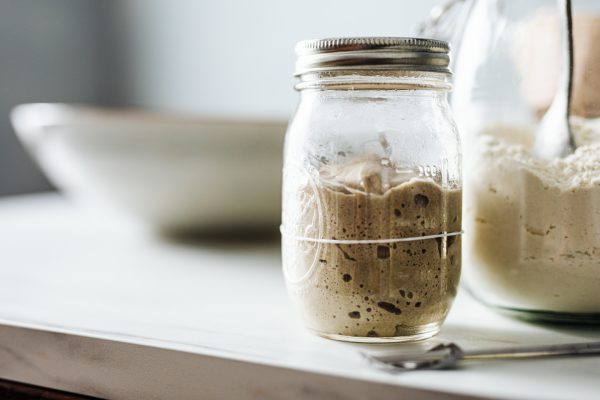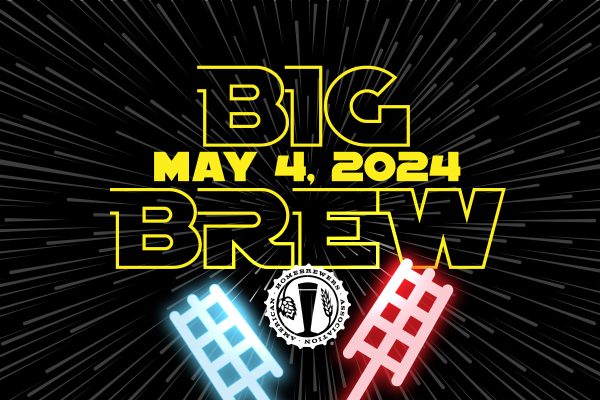
Put your knowledge of all things Reinheitsgebot to the test in this week’s Tuesday Beer Trivia quiz.
This week’s quiz puts your beer history knowledge to the test, covering the infamous Reinheitsgebot. “What’s the Reinheitsgebot?” you ask. We’d love to tell you, but we’d give away answers to the quiz. So…have at it!
After you take the Beer Trivia quiz below, scroll down to the “Beer Trivia Answer Explanations” section to learn more about the Reinheitsgebot.
[polldaddy type=”iframe” survey=”499C4619CF2411DA” height=”auto” domain=”2491351″ id=”beer-trivia-reinheitsgebot”]
Beer Trivia Answer Explanations
Click To Expand
Question 1: The Reinheitsgebot, also known as the German Beer Purity Law, is a signed decree that limited what ingredients could be used to brew. Note that the original text makes no mention of yeast, malt, purity, or differences between ales and lagers—these are later additions. Yeast was not part of the 1516 edict because an understanding of fermentation agents would not emerge until well after 1676, the year that Dutch scientist Antonie van Leeuwenhoek developed the first usable microscope. Managing beer quality was difficult for breweries before the emergence of microbiology in the 19th century. The reason for the law was to keep beer and bread affordable, as well as protect the quality of beer. Many brewers covered up off-flavors with all sorts of additives like tree bark, rushes, and poisonous mushrooms, as well as hallucinogens like mandrake root. Some even used oxen bile, soot, and chalk.
Question 2: Duke Wilhelm IV of Bavaria, at a meeting of the Assembly of Estates in Inglostadt on April 23, 1516, signed the Reinheitsgebot.
Question 3: Duke Wilhelm IV of Bavaria is responsible for passing the Reinheitsgebot. Although the Reinheitsgebot is the most famous of German laws pertaining to beer, there were many ordinances and regulations passed prior to the Reinheitsgebot. The Justitia Civitatis Augustensis, a civil code of Augsburg, Bavaria, issued in 1156 by the Holy Roman Emperor Frederick “Barborossa,” decreed that a brewer who made bad beer would be punished, and the beer would be destroyed or given to the poor at no charge. Duke Albrecht IV, Wilhelm’s father, forced all brewers in the city of Munich to take a public oath of faithful allegiance to a 1447 ordinance demanding brewers use only barley, hops and water in their beers, and Duke Georg the Rich extended the oath of allegiance to the central Bavarian duchy of Lundshut in 1493.
Question 4: Brewers who violated the Reinheitsgebot had their beer barrels taken by the state and destroyed, and the owner(s) did not receive any money for the loss. Stated in the decree, “…Whosoever knowingly disregards or transgresses upon this ordinance, shall be punished by the Court authorities’ confiscating such barrels of beer, without fail.”
Question 5: Of the 315 words in the document, only 31 deal with beer ingredients. The rest of the edict discusses beer price controls and penalties for violators. Specifically, the price of beer was capped at 1 pfenning (cognate with the English penny) in the winter and 2 pfennings in the summer. The difference was to compensate for the increased cost of brewing and lagering in the summer months. Taken from the English translation of the Reinheitsgebot: “From Georgi to Michaelmas, the Mass [a measure of beer] shall not be sold for more than two Pfenning of the same value…Should any person brew, or otherwise have, other beer than March beer, it is not to be sold any higher than one Pfenning per Mass.” The law also affirmed the State’s authority in the event of scarcity and a subsequent increase in the price of barley.




Share Post